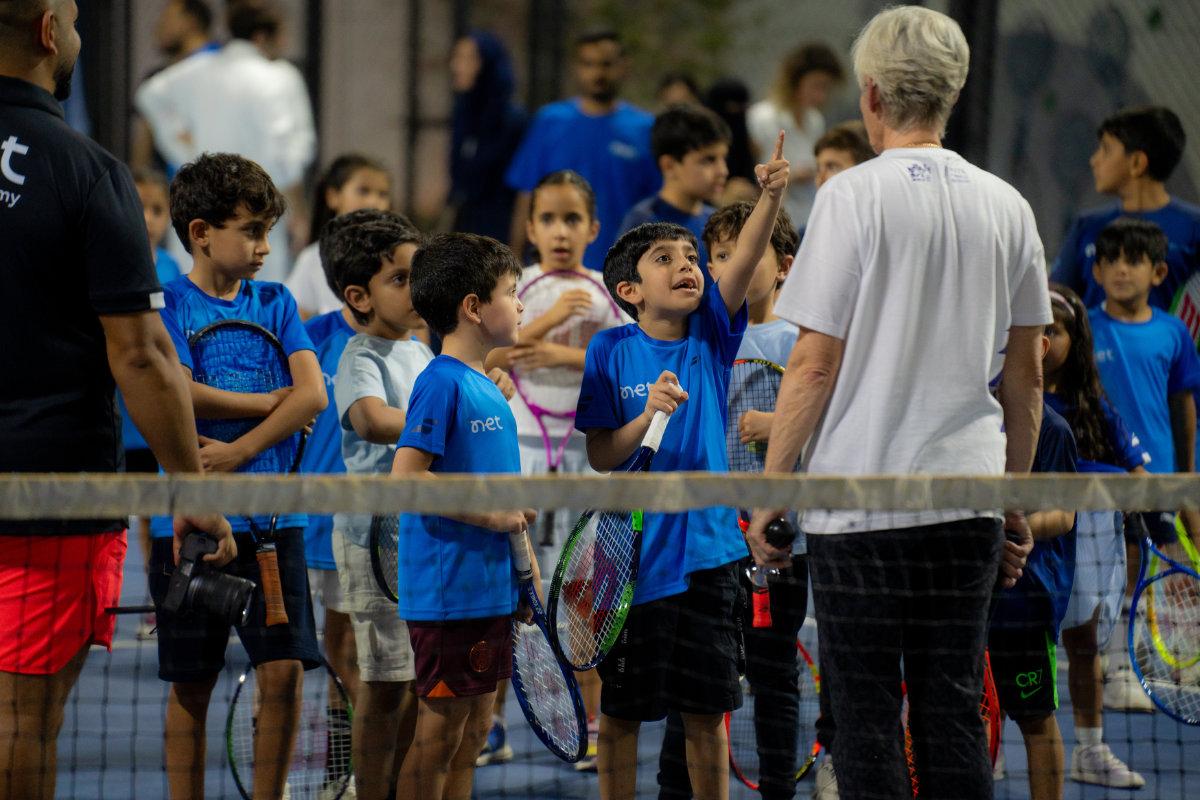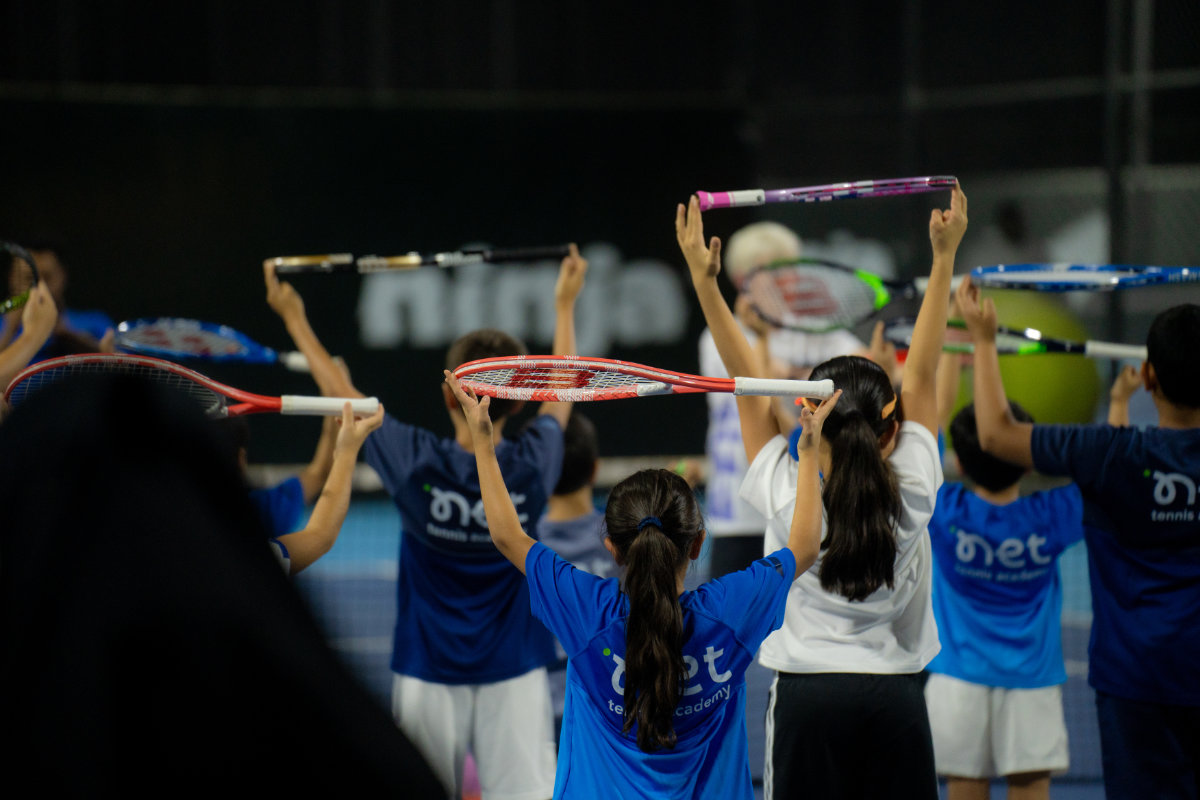RIYADH: Scottish tennis coach Judy Murray and former world No. 1 Spanish-Venezuelan Garbine Muguruza conducted a tennis clinic for children at the Net Tennis Academy in Diriyah on Tuesday.
Ahead of the WTA Finals that will be held for the first time in Riyadh in November, the pair spoke to Arab News about the growth of the sport in the region.
“I think there is a new generation now ... We have great players from all nationalities and we feel like every tournament there’s different winners. So that means that it’s very competitive,” Muguruza, who will act as tournament director for the upcoming event, said.
Public events could help to raise the profile of the sport, she said.
“One very good example is what we are doing here today. We are bringing the community together, especially the kids. The kids are the ones that are going to follow our footsteps and be the next generation.”

Scottish tennis coach Judy Murray, the mother to former world No. 1 and three-time Grand Slam champion Sir Andy Murray and his brother Jamie, has said she sees a bright future for tennis in Saudi Arabia. (AN photo: Abdulrahman Shalhoub)
The Saudi Sports for All Federation and Saudi Tennis Federation are working together to stage the Tennis for All program at SFA Neighborhood Clubs in Riyadh, Jeddah and the Eastern Province. The initiative is one of several launched to encourage people across the Kingdom to become more physically active.
Murray, who is mother to former world No. 1 and three-time Grand Slam champion Sir Andy Murray and his brother Jamie, had a similar message.
“It’s important that we share the sport as much as we can with those in the local community,” she said.
“The bigger your workforce, the more you can share your sport with any kids, teens, adults who might be interested in getting involved and picking up a racket.”

Scottish tennis coach Judy Murray conducts a tennis clinic for children in Diriyah, as part of an initiative to grow the Saudi game. (AN photo: Abdulrahman Shalhoub)
But the most important thing was passion, she said.
“I look at my sons, who were professional players for many, many years. They’re 37 and 38 now and they still love the game. They still love competing. They’re real students of the game. They really research, study it, love it. And I think I would say exactly the same for myself. I love the game.”
Having worked directly with the SFA, Murray said she saw a bright future for tennis in Saudi Arabia.
“I think bringing the World Tour Finals here for a three-year period and also having brought the next gen finals here, and there are a number of other things in the pipeline that will bring some major events into Saudi, the closer you can get your people to the action, live action, the more they are probably inspired to try it ... the more they believe that they could actually do it as well,” she said.
“I think that the goal is by 2030, to have a million people playing tennis, which is always good to have a target and I actually think you’re going to smash that target.”
















